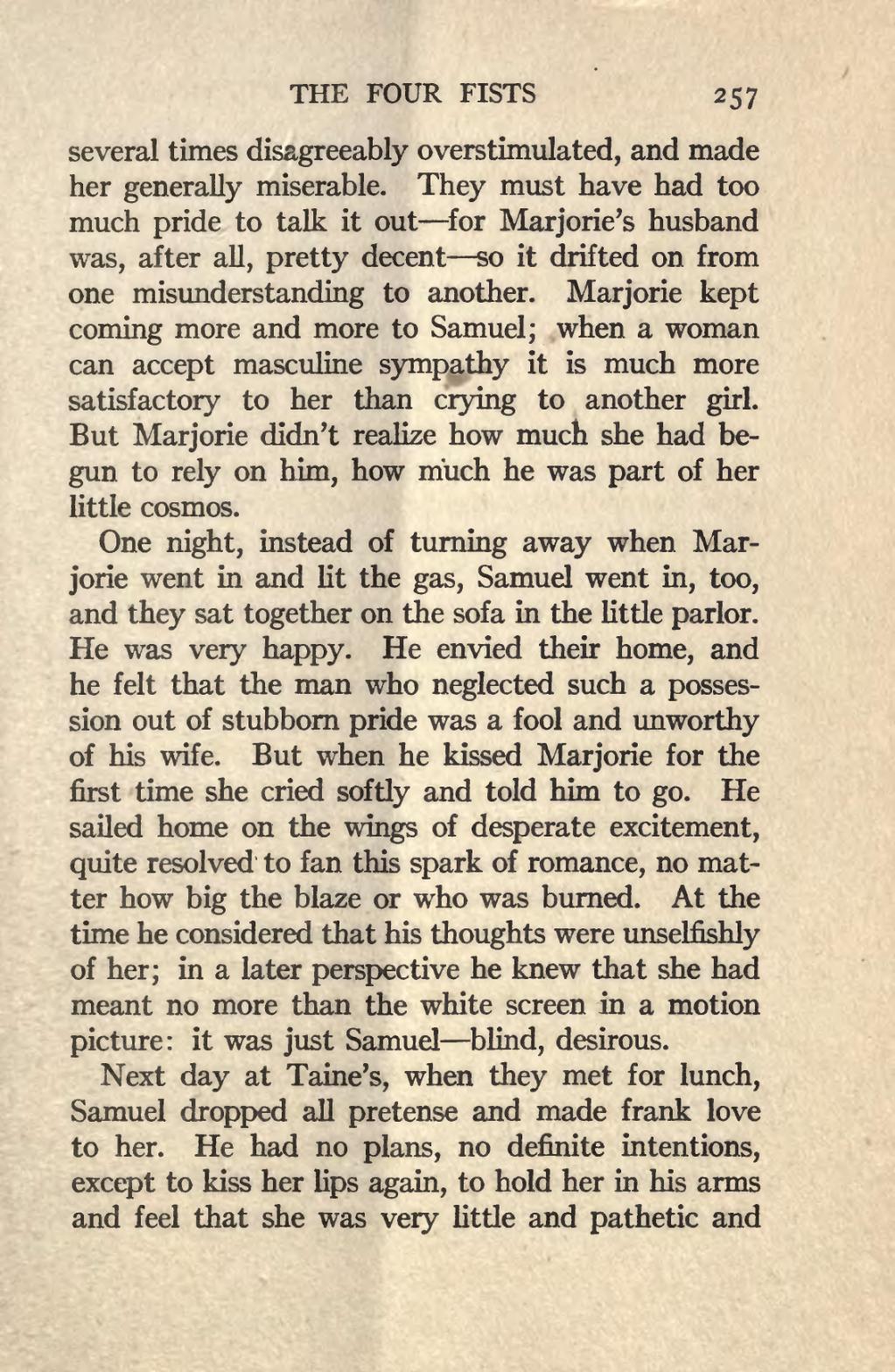several times disagreeably overstimulated, and made her generally miserable. They must have had too much pride to talk it out—for Marjorie's husband was, after all, pretty decent—so it drifted on from one misunderstanding to another. Marjorie kept coming more and more to Samuel; when a woman can accept masculine sympathy at is much more satisfactory to her than crying to another girl. But Marjorie didn't realize how much she had begun to rely on him, how much he was part of her little cosmos.
One night, instead of turning away when Marjorie went in and lit the gas, Samuel went in, too, and they sat together on the sofa in the little parlor. He was very happy. He envied their home, and he felt that the man who neglected such a possession out of stubborn pride was a fool and unworthy of his wife. But when he kissed Marjorie for the first time she cried softly and told him to go. He sailed home on the wings of desperate excitement, quite resolved to fan this spark of romance, no matter how big the blaze or who was burned. At the time he considered that his thoughts were unselfishly of her; in a later perspective he knew that she had meant no more than the white screen in a motion picture: it was just Samuel—blind, desirous.
Next day at Taine's, when they met for lunch, Samuel dropped all pretense and made frank love to her. He had no plans, no definite intentions, except to kiss her lips again, to hold her in his arms and feel that she was very little and pathetic and
